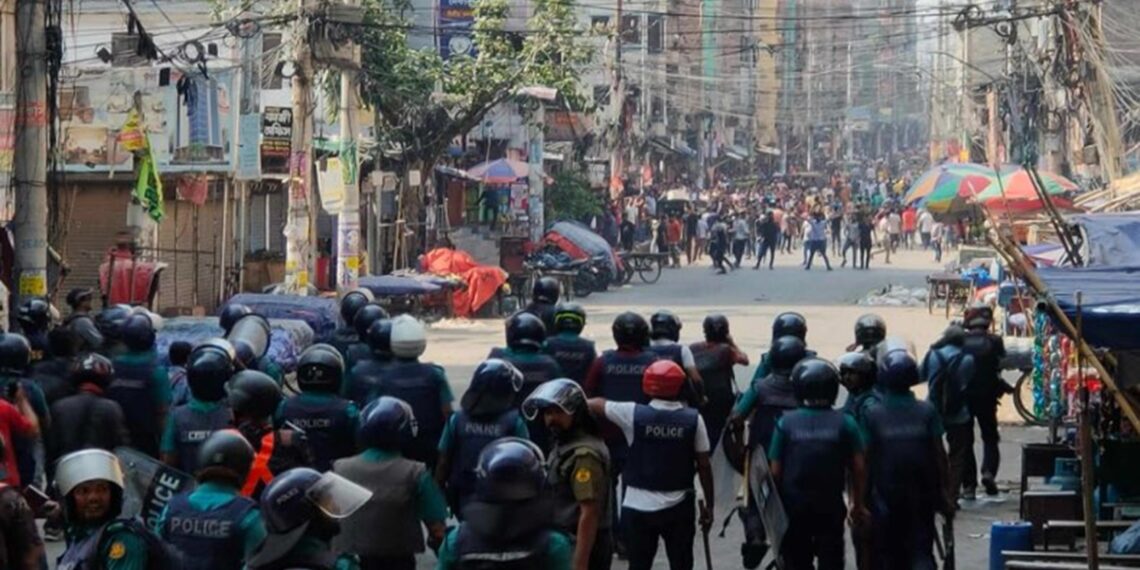“We will work to hold accountable those who threaten, who intimidate, who attack union leaders, labor rights defenders, labor organizations – including using things like sanctions, trade penalties, visa restrictions – all the tools in our kit. We want to be there for people like Kalpona Akter, a Bangladeshi garment worker and activist, who says that she is alive because the US embassy advocated on her behalf. When we use our voice, when we use our advocacy around the world, we can make a difference in making sure that those who are trying to advance labor rights are protected and defended”.
Thus spoke US Secretary of State Antony Blinken at the “Rollout of the Presidential Memorandum on Advancing Worker Empowerment, Rights, and High Labor Standard Globally” at San Francisco on November 16, 2023.
Blinken’s strong words – and they are ominous – come at a time when Bangladesh’s readymade garments workers were made the target of state repression during recent protests aimed at raising monthly labour wages.
The violent action by the police and other law enforcement agencies, faced with massive protests at several locations where most of the readymade garments (RMG) factories are located, took the lives of at least six workers earlier this month.
Subsequently, a wage board earlier constituted to review RMG workers’ wages recommended that minimum monthly figure be raised from Tk 8,000 to Tk 12,500. This was not accepted by the labour unions who continue to press for minimum wages be fixed at Tk 23,000 per month.
Meanwhile, Northeast News has learnt reliably that a delegation of the European External Action Service (EEAS), Asia Pacific Division, to Dhaka expressed “extreme displeasure” on labour rights standards during a meeting Bangladesh Garments Manufacturers and Exporters Association (BGMEA) office bearers on November 13.
The delegation was led by EEAS Deputy Managing Director (in charge) Paola Pampaloni.
“While the high-powered team was very unhappy with Bangladesh’s labour standards in the RMG sector, the European officials drawn from labour and trade sections, faulted the government for current state of affairs,” a BGMEA office bearer told Northeast News.
Taking a hardline stand, the EEAS representatives told the BGMEA team to “not defend themselves” and to “listen to them”, the sources said, adding that the visiting delegation said in no uncertain terms that the “free leverage” related to the 2021-2026 National Action Plan for the labour sector “might not be extended by three more years” as Bangladesh’s “progress has been very poor” and therefore the “promised additional three-year extension” may not be continued.
The three-member EEAS delegation is said to have raised the issue of free and fair elections besides the controversial and thorny matters related to labour rights and safety. This has raised the hackles of the BGMEA which fears that in the event the EEAS takes a stern view of prevailing labour conditions, Bangladesh could be “excluded from the European Union’s GSP (Generalised Scheme of Preferences)”.
BGMEA sources fear that should this happen, “Bangladesh will be finished”. The EU is the biggest importer – accounting for 58% of its total exports and 64% of the total apparel exports — from Bangladesh which has been enjoying zero tariff benefits under the EU’s GSP.
The EEAS delegation’s visit was aimed at taking “stock of progress” in implementing improved labour laws in Bangladesh and the progress, if any, it has made in its transition from a least developed country.















